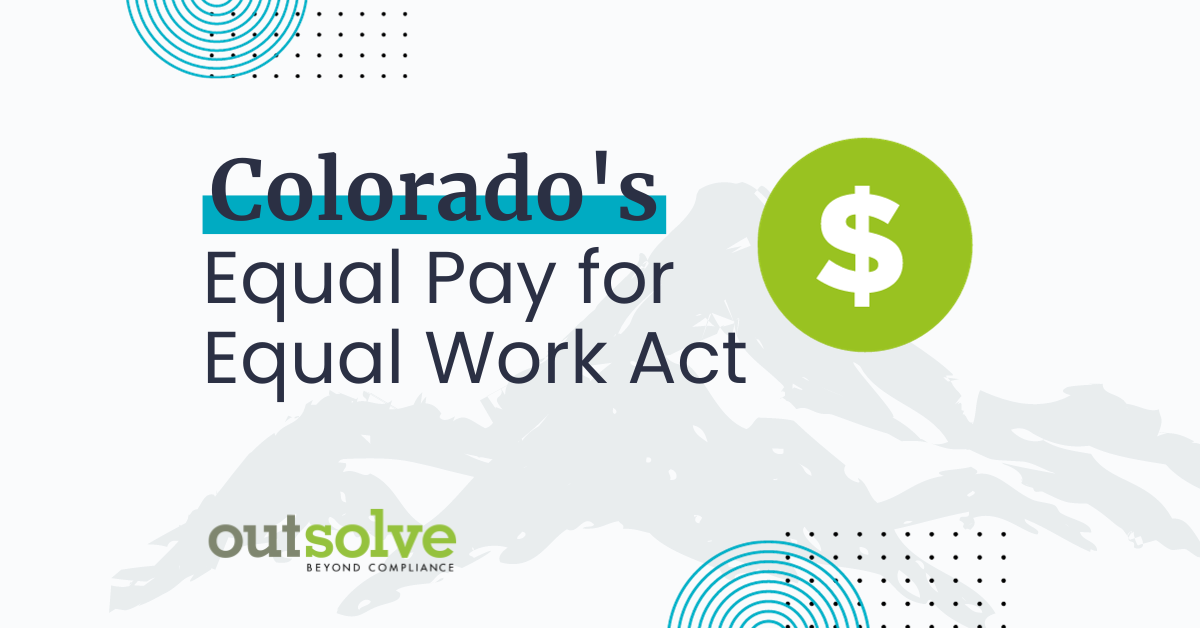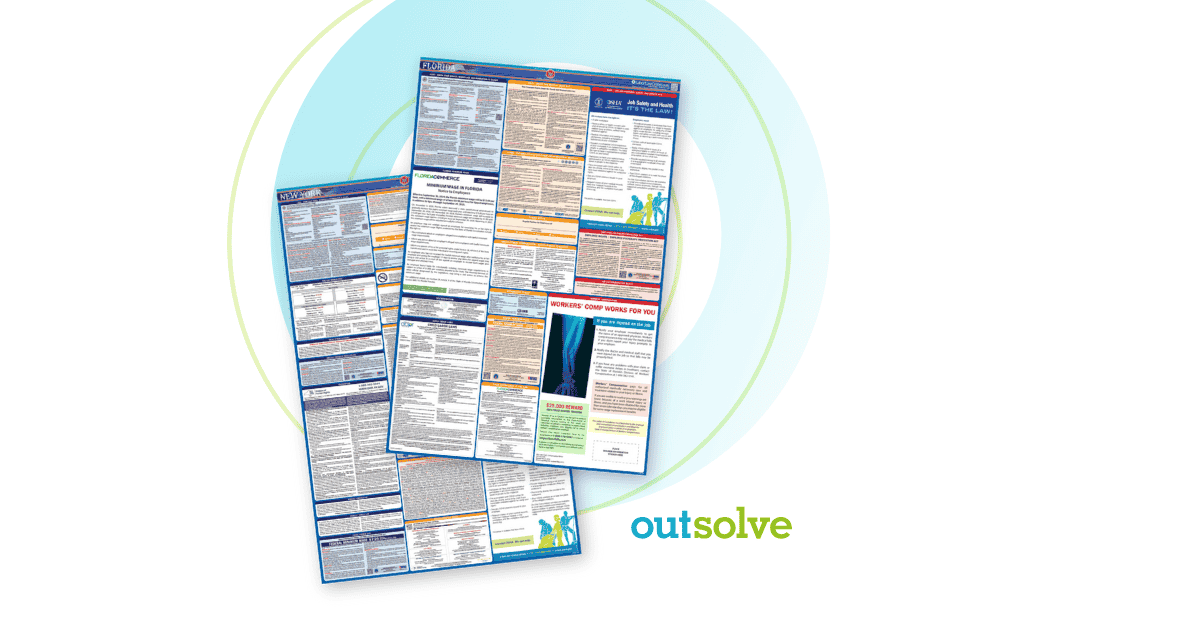3 min read
Decoding Colorado’s Equal Pay for Equal Work Act
 Debra Milstein Gardner
:
Jan 8, 2024 10:45:00 AM
Debra Milstein Gardner
:
Jan 8, 2024 10:45:00 AM

The signing of SB-23-105 by Governor Jared Polis on June 5, 2023, marked a significant moment for Colorado's Equal Pay for Equal Work Act. These amendments, effective January 1, 2024, are aimed at promoting greater pay transparency and fairness in the workplace. They not only extend the statute of limitations for wage discrimination claims but also introduce new mandates for the Colorado Department of Labor and Employment (CDLE) in handling these claims. On September 23, 2023, the CDLE released the proposed Equal Pay Transparency Rules (EPT Rules), which were officially adopted on November 9, 2023.
Key Areas of Change and Clarification:
Career Development and Progression Exclusions: The EPT Rules clarify that "career developments" and "career progressions" are excluded from the notice obligation. Career developments refer to employee role changes reflecting their existing contributions, not associated with a new or vacant position. Career progressions are defined as regular or automatic transitions from one role to another based on time or objective metrics. Employers must disclose the requirements and terms for these positions to eligible employees.
Application Deadlines and Acting, Interim or Temporary (AINT) Hires: The rules address the confusion around application deadlines in job postings, particularly for ongoing or "evergreen" positions. The amended Act requires employers to disclose “the date the application window is anticipated to close.” However, they allow for deadline extensions if the original deadline was a good faith estimate of what the deadline would be, and the posting is promptly updated when the deadline is extended. Additionally, AINT hires for up to nine months are exempt from job opportunity postings, provided certain conditions are met.
Post-Selection Notice Requirements: Employers must notify employees who will regularly work with the selected candidate for a position. The rules define "work with regularly" and provide guidelines for the scope and method of these notifications, including exceptions for privacy and safety concerns.
Geographic Scope: The EPT Rules specify that the notice requirements do not apply to employees entirely outside Colorado. This includes the compensation and benefits disclosure requirements for positions located outside the state.
To assist employers, Colorado has prepared Interpretive Notices, Formal Opinions, and Other Guidance. The Colorado Department of Labor and Employment’s newly released Interpretive Notice and Formal Opinion (INFO) #9A offers authoritative views, guidelines, and illustrative cases to assist employers in adhering to the Rule.
Action Steps for Employers:
Revise HR Policies: Align your HR policies with the new EPT Rules, focusing on job postings, career progression, and post-selection notifications.
Training and Education: Conduct comprehensive training sessions for HR and management teams to ensure understanding and compliance with the new rules.
Ongoing Compliance Monitoring: Regularly review and update practices to maintain compliance and stay informed about any further guidance or interpretations of these rules.
Understanding the geographic scope of these rules is crucial, especially for businesses with a workforce distributed across multiple states.

The amended Equal Pay for Equal Work Act in Colorado represents a significant step towards greater transparency and equity in employment practices. Employers must proactively adapt to these changes to ensure compliance and foster a fair and transparent workplace environment.
The landscape of pay transparency laws in the United States is evolving, with varying requirements across different states and cities. Some, including California, Colorado, New York City, and Washington State, mandate employers to disclose salary ranges in job postings. Additionally, 20 states have laws prohibiting employers from inquiring about an applicant's pay history. Some states necessitate the inclusion of wage ranges in job listings, while others require disclosure only after the first interview or upon the applicant's request. Beyond just salary, some states also require employers to disclose the total compensation package, including benefits and bonuses. The requirements can differ for remote employees, with some states demanding transparency for remote roles, while others focus on hybrid or in-office positions.
At the federal level, the Salary Transparency Act and Pay Equity for All Act were introduced in Congress in March 2023. If passed, these laws would nationally mandate the disclosure of wage ranges for all employment opportunities and prohibit inquiries into job candidates' salary histories. This demonstrates a broad movement to create greater pay transparency and equity nationwide.
Even if these federal laws do not pass, the trend toward state-level pay transparency legislation is growing. These laws aim to foster more transparent and equitable workplaces by requiring the disclosure of salary information, which can vary in terms of timing and detail.
Employers, especially those with a workforce in multiple states, face challenges due to the patchwork nature of these laws, as they must navigate and comply with varying regulations in different jurisdictions. Understanding and adhering to these diverse pay transparency laws is crucial for employers to ensure legal compliance in all states where their employees are based. OutSolve stands ready to assist your organization with these challenges- contact us today for support.
Debra Milstein Gardner has worked in the Equal Employment Opportunity (EEO) and Affirmative Action (AA) space for the past 43 years while working in the public and private sectors in various human resources compliance roles. She began her career working for the Equal Employment Opportunity Commission and then went to the Marriott Corporation for nine years working in EEO, Affirmative Action and field human resource roles. In 1990, Debra founded Workplace Dynamics LLC providing EEO, AA, and DEI consulting services to government contractors. In 2016, Debra sold the affirmative action portion of Workplace Dynamics to OutSolve LLC and works part-time as a Market Analyst. Debra is a sports fanatic, routing for the Baltimore Ravens and all Virginia Tech Hokie teams. She loves to hike and boat in her mountain and lake community of Lake Lure, NC.
Recent Posts
Related Posts

The Ultimate Guide to Multi-State Labor Law Posters
Human Resources professionals understand how important and challenging it can be to remain updated and compliant with labor laws. This is especially...

Countdown: Final Days of the 90-Day Safe Harbor Period for AAPs
April is here and with that comes the end of the 90-day safe harbor period for federal contractors complying with EO 11246. As April 21, 2025,...

What Triggers an I-9 Audit? Key Factors You Should Know
Verifying proper identity and work authorization documentation for every employee is a crucial HR compliance function - not just for a company’s...


